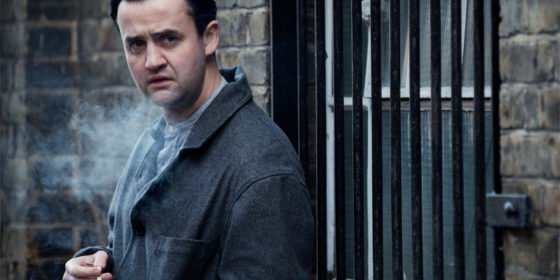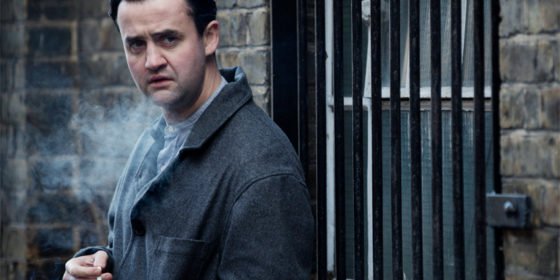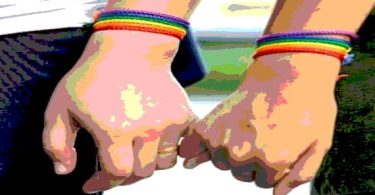
The BBC is running a ‘Queer Britannia’ series of shows in the UK. It’s to mark the 50th anniversary of the decriminalization of homosexuality in England and Wales.
One of the highlights of the series is Against The Law: a docudrama based on the book of the same name by the journalist Peter Wildeblood.
In the 1950s, Wildeblood, alongside his friends Lord Montagu of Beaulieu and Michael Pitts-Rivers, stood trial for the crime of inciting gross indecency. The men had had a party at a beach hut with two RAF men, who subsequently turned evidence against them.
Wildeblood had written passionate love letters to one of the airmen. Up until the time of their arrest, the two had enjoyed an affair.
Sentenced to prison
It was the most high-profile gross indecency case since the trial of Oscar Wilde in 1895. It provoked a national conversation about homosexuality and its legal status.
I was already familiar with the case. Channel 4 made a drama about it, A Very British Sex Scandal, in 2007. As I sat down to watch a preview screening of Against The Law recently, I wasn’t sure the film would tell me anything I didn’t already know.
I was wrong.
Against The Law includes interviews with elderly gay men about life in Britain prior to the decriminalization of gay sex in 1967. Many experienced persecution and arrest.
In one particularly shocking scene, Wildeblood (played by Daniel Mays), who was sentenced to 12 months’ imprisonment, visits the hospital doctor (Mark Gatiss) to discuss ‘treatment’ for his sexuality.
I already knew that gay men were injected with female hormones in a deeply misguided and tragic attempt to turn them straight. The World War II codebreaker and maths genius, Alan Turing, was subjected to this. He subsequently grew breasts and experienced memory problems. A couple of years later, he committed suicide.
I also know there were attempts at barbaric electro-shock treatment – whereby men were shown images of people in stages of undress and administered electric shocks when they saw photos of men.
I didn’t know that there was a third, horrific form of ‘aversion’ therapy. Men were given drugs to induce nausea. This would make them sick. They would vomit and have diarrhea.
A nurse would check in on them but was not allowed to clean them up. The ‘patient’ was then made to lie in their own human waste, sometimes for up to three days.
One of those interviewed in the film recounts this inhumane treatment. A nurse looks back with regret at how he participated.
Discredited conversion therapy
It should go without saying that none of these so-called treatments had an effect on sexuality. Rather than helping the ‘patient’, they often made things worse. There are records of at least one man dying from the side effects of being given doses of apomorphine in hospital.
Others, like Turing, went on to commit suicide.
Other gradually accepted their sexuality. One, Peter Price, told the BBC in 2003 about receiving the treatment and returning home feeling ‘dirty, filthy and vile.’ A few months later, by complete coincidence, he ran into the doctor who had treated him at a gay club. ‘I was furious. I tried to attack him with a broken bottle.’
In the UK today, gay men and lesbians enjoy the same rights as heterosexual people. We are protected against discrimination.
Such stories of aversion therapy seem the stuff of nightmares. It’s hard to believe homosexuality was only removed by the World Health Organization’s international classification of diseases in 1992.
And yet… there remain a disturbingly large number of people who believe it is possible to alter an individual’s sexuality.
Attempts at gay cure continue
In South Africa, in 2015, a man who ran ‘gay cure’ camp was sentenced to 25 years in prison following the death of a 15-year-old buy entrusted to his care. The teenager had been starved, tortured and forced to eat his own feces: all an attempt to make him more ‘manly’.
In May, a photographer in Ecuador highlighted the reality of psychiatric clinics in the country where dozens of people – predominantly women – undergo ‘treatment’ to try and make them heterosexual.
Earlier this month, we carried news about a man in China who sued a psychiatric hospital for subjecting him to attempted gay conversion therapy. He was placed in the hospital by his family.
Just this weekend, we reported on a case bought by the National Center for Lesbian Rights in California against a therapist it alleges tried to turn a female patient straight. This included encouraging her to date and have sex with one of his male clients.
Most credible health organizations and psychiatric bodies say that attempts to change a person’s sexuality will inevitably fail. In 2012, the Pan American Health Organization called ‘conversion therapy’ a ‘a serious threat to the health and well-being—even the lives—of affected people.’
Watch Against The Law and be horrified – but bear in mind that there are gay people around the world now being subjected to dangerous and damaging therapies in doomed attempts to alter their true nature.
Against The Law is on Wednesday 26 July on BBC2 and will be available afterwards on iPlayer.







